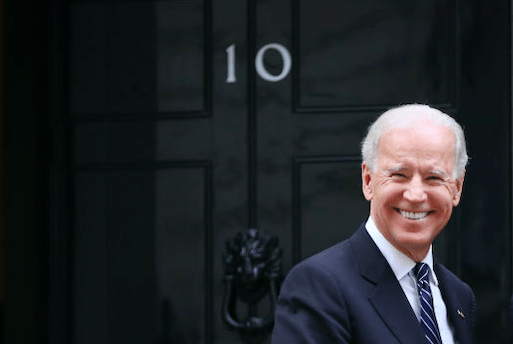President Donald Trump sees himself as a great friend to the UK: he backed Brexit, likes Boris, and has personal ties to Britain as well. He’s proud of his Scottish heritage, and long before he was running the nation, he was running golf courses in his mother’s home country. But it’s not obvious the UK government always appreciates the President’s expressions of support. The Johnson team made nothing of Trump’s endorsement for the Tory candidate during the 2019 general election. The government is notably squeamish whenever the President lavishes his praises. Perhaps this comes down to cultural differences, but it’s hard to overlook out the nervousness that accompanies a statement from Trump of any kind: where he goes, international media storms tend to follow.
I suspect that if Joe Biden finds himself the 46th President of the United States – the
current state of the American race would suggest this is increasingly likely – the Prime Minister will be letting out a big sigh of relief. Biden and Johnson will have their ideological divides, but they are likely to have far more in common, from their plans
for tackling Covid-19 to their support for international institutions and global cooperation.
Biden’s Democratic party and Johnson’s Conservative party have far more in common than many would admit
As I say in yesterday’s Daily Telegraph, Biden and Johnson are both inclined to take a cautious approach towards coronavirus. The Prime Minister is starting to face rebellions in his own party, as 34 Tory MPs voted against England’s second national lockdown. Biden is set to take a tougher approach than President Trump, with plans to put forward a national mask mandate – part of an effort to move towards a federal approach rather than a state-based one. While both leaders are likely to face opposition to their strategies, a more ‘hawkish’ America will further solidify a western consensus on restrictions and lockdowns, providing Johnson with more support (and cover) should restrictions stay tight or a third lockdown loom.
And while under Trump’s administration the UK was told it would be at the ‘front of the queue’ for a trade deal, Biden’s attitude towards free trade may well serve the UK better for securing the deal. An embrace of free trade would be the antithesis to Trump’s protectionism and trade wars, creating the right conditions to negotiate a bilateral deal. It’s also much harder to fearmonger around a trade deal with America with Biden leading the country: ‘selling off the NHS to Joe Biden’, or ‘Biden’s substandard chicken’ doesn’t have the same scary ring to it as it did with Donald Trump. And even if the process stalls between the US and the UK, there’s always a multilateral deal to be struck: if both countries were to join the Comprehensive and Progressive Agreement for Trans-Pacific Partnership – which America was set to do until Donald Trump pulled the plug – the headaches and political hurdles of striking a deal directly could be avoided, with many of the benefits of trade still reaped.
None of this will be a walk in the park: Biden’s party has already issued fighting words to Johnson’s government over the Internal Markets Bill. But there is plenty of time to kiss and make up. The UK is set to host the G7 Summit as well as Cop26 next year. Covid-19 permitting, the President is coming to the UK and the Prime Minister will get to play host. Moreover, they’ll both be leading the way on issues they care greatly about: international cooperation and the green agenda.
While there are bound to be areas of disagreement between the two men, Biden’s Democratic party and Johnson’s Conservative party have far more in common than many would admit. Perhaps most importantly, their personal relationship is likely to improve on the last pairing: a world where the US and UK pick up the phone to each other more often is a world vastly improved.







Comments